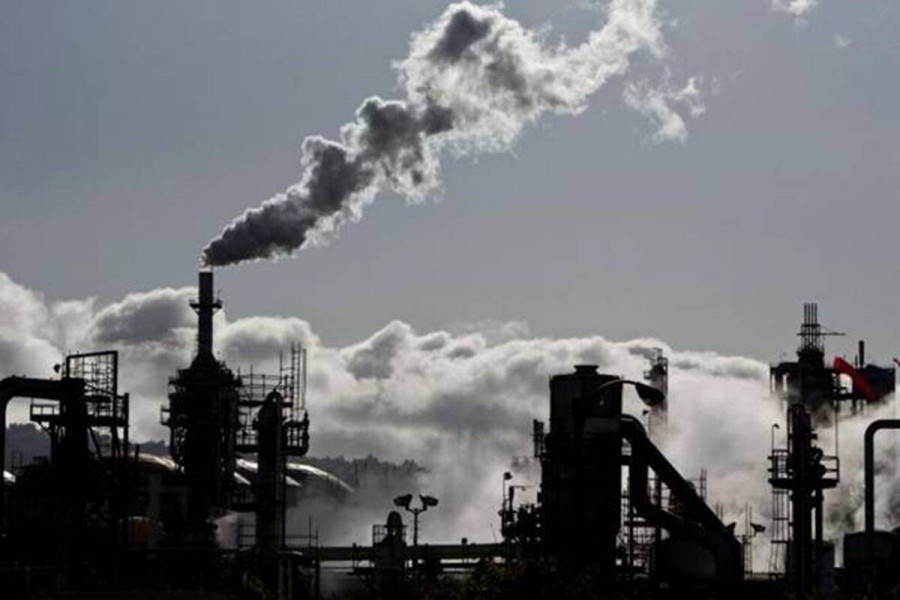
Published :
Updated :

The supreme body of the United Nations Framework Convention on Climate Change (UNFCCC), the Conference of Parties (COP), is in a meeting for the 26th time in Glasgow, Scotland. Also called Climate Summit, the global event's main thrust will be to make the advanced industrialised nations recommit and act in the spirit of the previous climate summits, especially the COP21, where the Paris Agreement was signed in December 2015. The Agreement's goal was to limit global warming below 2 degrees Celsius above the pre-industrial level. Ideally, the target is to keep it at 1.5 degrees. And the way to limit global warming is to cut carbon emissions. As it is well known, the main cause of the global warming is the use of the fossil fuels as the world's main source of energy.
And to reach the goal of limiting global temperature rise, the nations will be required to reduce fossil fuel use in a big way. In its spirit, the Paris Agreement has been a landmark one in that it was for the first time that the nations of the world reached a binding agreement for an ambitious common cause: combating climate change. According to the agreement, nations would cut emissions and undertake adaptation and mitigation measures, and take increasingly ambitious steps to that end. Five years later, countries party to the climate convention would submit their national plans, the so-called Nationally Determined Contributions (NDCs), to the next climate summit in 2020. However, the summit has been delayed by a year due to the Covid-19 pandemic. Therefore, at the climate summit -- COP26, now taking place in Glasgow -- participating nations are expected to submit their NDCs.
The Glasgow climate summit has just begun and it will continue until November 12. What can we expect from this summit? Some concrete actions in cutting emissions and the rich nations' delivering on the pledge of providing a yearly sum of US$100 billion for the poor, climate vulnerable nations by 2020 so they might combat climate change, perhaps? Sadly, nothing like that is seen to have happened so far. And signals coming from the G20's Rome summit, comprising world's 20 biggest economies, cannot also be said to be very optimistic. These G20 leaders are also going to be the main players at the climate summit of Glasgow. For these are the nations who contribute to the global warming the most (emit 80 per cent of the carbon, globally), have, practically, all the wealth and the technologies. Actually, they have the power to make or unmake the prospect of anything good coming out of the ongoing climate summit.
But will they do their bit? China and Russia's supreme leaders are not physically attending the summit. However, they will participate through video link. Diplomats eager to see a significant outcome from the COP26 do not look very upbeat. With their massive coal-and-oil-based power plants, those two big powers as well as India are not going to support any ambitious emission cut deal in Glasgow. Clearly, the rich nations would like to wait until the situation is convenient for them to act. But will nature wait that long? Commitment on drastic emission cuts must be made now. Otherwise, it will be too late for humanity to survive for long. Burning of oil and coal, if continued unabated, the target of achieving the below 2 degree Centigrade rise in global temperature and meeting net zero emission target by 2050 will remain a far cry. Sensing difficulty ahead, the British prime minister, Boris Johnson, has at the G20's Rome summit said that without courageous action the world civilisation would collapse as swiftly as the Roman empire, ushering in a new Dark Age.
What Boris Johnson said should not be considered as purely oratorical. Looking at the erratic behaviour of the weather including the unpredictable rain, floods, cyclones, forest fires, heatwave, melting icecaps, to name but a few of the alarming climate events, one need not be an expert to understand that our familiar world has gone into convulsions. However, climate scientists are saying that the solution is already in hand. The only requirement is the highly industrialised economies should be as good as their word.
sfalim.ds@gmail.com


 For all latest news, follow The Financial Express Google News channel.
For all latest news, follow The Financial Express Google News channel.